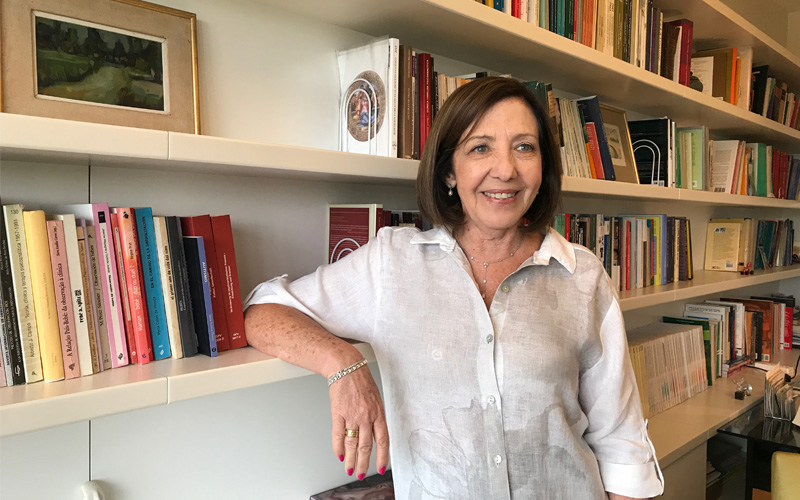“Psychoanalysis has created a precious tool, the psychoanalytic method. The psychoanalytic method can be used in our consulting rooms, but we think that this precious tool that we have developed can be used in other territories.”

Virginia Ungar MD
Buenos Aires
Episode Description:
Harvey Schwartz welcomes, as the first guest of IPA Off The Couch, Virginia Ungar, current President of the International Psychoanalytic Association. She is a training analyst at the Buenos Aires Psychoanalytic Association where she lives and practices. She specializes in child and adolescent analysis and was the former chair of the IPA’s child and adolescent psychoanalysis committee as well as chair of the committee for integrative training. The IPA and the community project — of which this podcast is one expression — has been a pillar for Dr. Ungar’s Presidency.
In this first episode you will learn first hand about her vision for our field and for our future.
Key Takeaways:
[1:43] Introduction of Dr. Virginia Ungar, President of the International Psychoanalytic Association.
[3:17] Dr. Virginia Ungar’s vision for the IPA and the community.
[4:43] The precious tool of the psychoanalytic method applied to the community.
[5:36] The IPA has committees on education, humanitarian organization, health, violence, law and culture.
[6:26] Awards for psychoanalysts who work in the community.
[6:58] What do psychoanalysts do different when working in the community?
[8:01] The analytic attitude in community work.
[9:56] Observation, listening and thinking prior to action.
[10:44] Evaluating an intervention for its impact in the patient’s associations.
[11:55] Dr. Virginia Ungar’s analytic journey.
[14:56] Psychoanalysts work between the intrapsychic world and reality.
[16:27] Reality is co-created by our minds.
[18:58] Psychoanalysis cannot use marketing strategies, the only way is showing how we work and think.
[20:08] Allow patients to get in touch with their own wish to come to analysis more often and deeply.
[21:20] Patients obtain psychoanalysis through the right motivation (Not necessary a reason)
[22:30] Dictatorship and psychoanalysis in Argentina.
[28:05] Emigration of psychoanalysts during dictatorship.
[28:45] Being in danger.
[29:30] Censorship.
[30:39] Psychoanalysis today in Argentina.
[33:33] IPA Awards against the stereotype that only the wealthy get psychoanalytic benefits.
Recommended Readings
Ungar, Virginia. Letter from Argentina. Int J Psychoanal 2017 98:3

Wonderful podcast!
Please let the public know more about specific programs where analysts can help in the community.
“We will be both photographers of the interior”. Such a lovely picture. Thanks a lot for this podcast!
Very interesting to hear how psychoanalysis could be expanding in different fields!
Such an important development! So gratifying to see the IPA reaching out so robustly.
Wonderful podcast, I was thinking about Neil Altman, who wrote an interesting book about this topic “The Inner city”. It’s a very interesting field to develop. Many thanks
I am very grateful to IPA, Virginia Unger and Harvey Schwartz for this the IPA’s first Podcast. I found it quite illuminating in a number of respects, but in particular that in Buenos Aires even the children happen to be so aware of psychoanalysis and that a 10year old would request to see an analyst I found most surprising. By comparison, in Australia adults would be hard pushed to have heard of psychoanalysis let alone the children. So I see these podcasts being an invaluable way to inform people of what psychoanalysis is about.
I also appreciated the list of key take away points and the reading given following the podcast. I look forward to listening to other podcasts and to passing this information on to others.
I am very grateful to the IPA and to the creators of this podcast. I believe this program will be able to help us all develop the kind of culture that exists in Beunos Aires and Argentina. It is very thoughtful. I do know something of the effort required to put together this kind of coherant podcast.